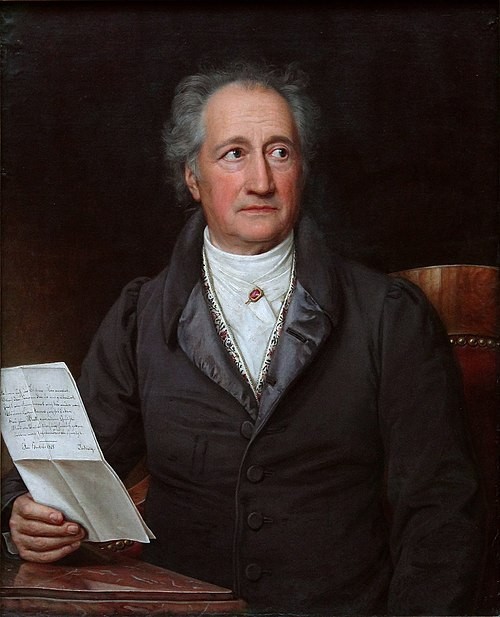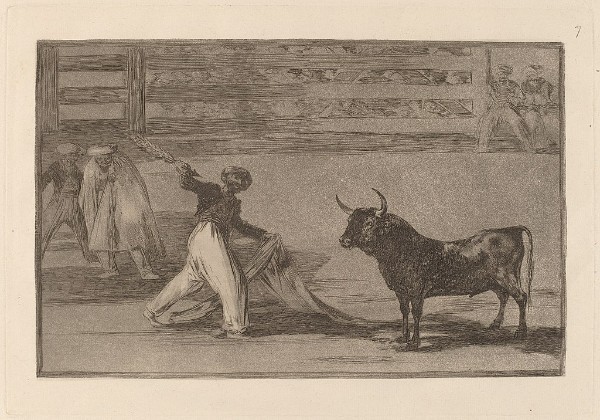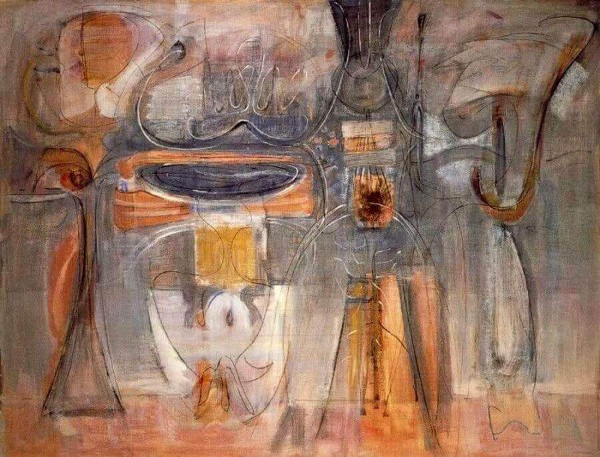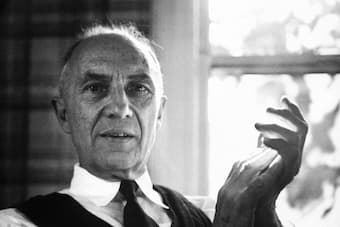
William Carlos Williams
In 1962, the American poet William Carlos Williams (1883-1963) published his last book of poetry, Pictures from Brueghel and Other Poems. The book opens with a ten-poem cycle based on paintings by the Flemish painter Pieter Bruegel the Elder (ca. 1525-1569). Williams was awarded, posthumously, the Pulitzer Prize for Poetry for this book.
For Williams, the poems were the culmination of the “American idiom” that he sought in all his poetry. The style is deceptively simple, with few words per line. In the first verse of ‘Landscape with the Fall of Icarus,’ for example, there are only 9 words.
According to Brueghel
when Icarus fell
it was spring
Yet, with those few words, Williams places us in the middle of Bruegel’s painting. We expect the actions of spring: the famer and his plow, the shepherd and his flock, the fisherman on the shore, and above, as a surprise, the inventor Daedelus watching his son Icarus fall in the water behind the ship.
Canadian composer Christopher Ludwig set this poem in a setting that matches the spare poetry:
Christopher Ludwig: Landscape with the Fall of Icarus (Cliff Ridley, baritone; Tatiana Khvatova, piano)
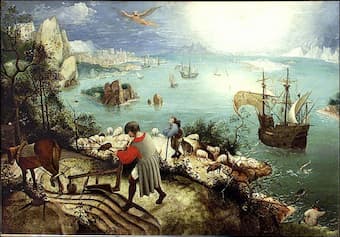
Bruegel: Landscape with the Fall of Icarus (ca. 1555) (Musee Van Buuren, Brussels)
Williams was an advocate of using colloquial American English in his creation of his Modernist style. In 1922, just as he was starting to make his name with Modernism, T.S. Eliot’s The Wasteland came out and Williams’ poetry was sidelined. Williams felt that Eliot’s brand of Modernism was, in reality, quite old-fashioned ‘…it set me back twenty years,’ he said, and that Eliot’s intellectual style, with its allusions to classical literature and use of foreign languages took poetry away from being rooted in the place it was being made.
Canadian composer Christopher Ludwig took some 56 poems from Williams’ output of 48 published books of poetry and writings and set them to music. He tries to capture the mood of each of Williams’ poems and maintain Williams’ unique vocal patterns, based on ‘American speech mannerisms. The composer noted, ‘Williams’ poems often contain potent imagery that is strongly suggestive of a musical context.
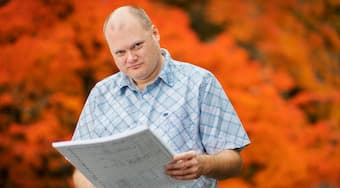
Christopher Ludwig
However, the irregular patterns, unusual syllabic rhythms, and uneven line lengths make an approach based on “verse writing” to be almost unworkable. The usual musical techniques of repetition and structure do not readily apply to most of Williams’ poems. Composer Christopher Ludwig surmounts these problems by creating a mood for each song through the piano writing, while the vocal melody is more often reminiscent of speech than singing.
In another work, Ludwig captures the temperature and loneliness of Williams’ poetry in Hunters in the Snow. The piano captures the hunters on the hill, the skaters on the ice, and the uncharacteristic mountains (not to be found anywhere in northern Europe).
Christopher Ludwig: The Cold Night (Cliff Ridley, baritone; Anna Varilova, piano)
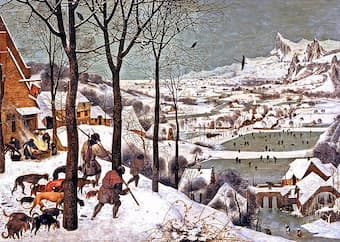
Bruegel: Hunters in the Snow (1565) (Kunsthistorisches Museum)
Ludwig’s goal of setting Williams’ poetry is commendable, but, like the poetry, a bit uneven. The lack of verses means that the composer must create repetitions in the text where there are none, such as repeating opening verses as concluding verses. While in some cases this works, in other cases, it turns Williams’ poetry into a circle that wasn’t intended.
Williams’ American idiom style was backgrounded by other poets’ more eloquent parsing, but nonetheless, there is a great deal there for a composer to feast on. Bringing out his works again gives us the chance to reassess his poetry and look at its musical possibilities.
For more of the best in classical music, sign up to our E-Newsletter

